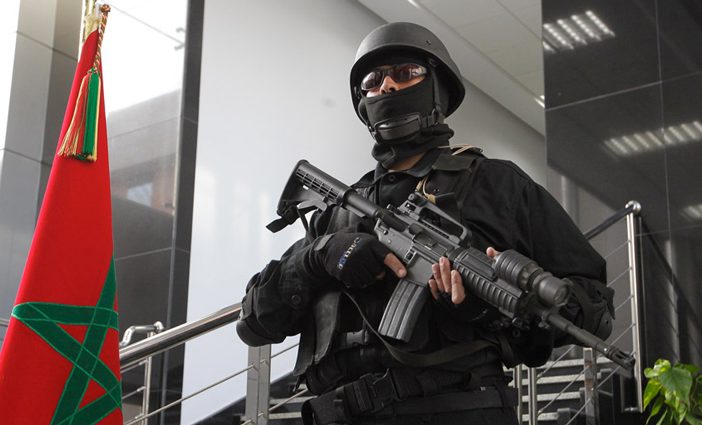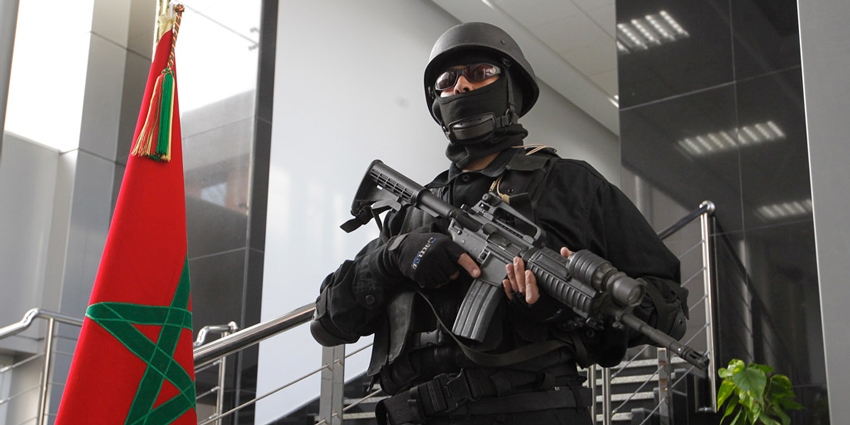Xinhuanet
Source: Xinhua
Morocco has dismantled nine terror cells in 2017, which represents a significant decrease in the number of busted terror cells compared to the last few years.
In 2015, security services in the north African kingdom broke up 21 terror cells and 19 in 2016, according to statistics from Morocco’s counter-terrorism agency, the Central Bureau for Judicial Investigations (BCIJ).
The number of terror suspects has also declined drastically in 2017. The number of arrested people does not reach 200 this year, while it exceeded 275 in 2015 and 2016.
The latest counterterrorism operations took place Monday in the southern Souss-Massa region. According to Le360.ma news site, four people were arrested over suspected links to terror organizations in the three-city raid.
However, the most serious threat posed by the busted cells this year came from a cell that was busted in the northern city of Fez last October.
On Oct. 14, Morocco announced the arrest of 11 people with suspected links to the Islamic State (IS) group, saying their cell was planning attacks in sensitive areas in coordination with an affiliate of IS. Authorities deemed the cell as “extremely dangerous.”
During a heavy police raid, firearms, ammunition, knives, gas canisters and chemical products used in bomb-making were seized.
In less than a month, police arrested 6 terror suspects in two separate counter-terrorism operations in Fez, tourist destination and spiritual center.
In a recent interview with Morocco’s official MAP news agency, Abdelhak Khiame, director of BCIJ, ascribed the decline in terror cells busting to Morocco’s proactive security approach, which is part of a larger multidimensional counter terrorism efforts.
He also warned of the threats posed by returning battle-hardened foreign fighters, noting that Morocco has since 2015 arrested 92 Moroccans returning fighters, including 20 fighters in 2017.
Morocco’s counter terrorism bureau estimates the number of Moroccans who have joined terror groups in the
Middle East since the eruption of the conflicts in Iraqand Syria to total 1,660. According to the same estimations, some 596 of those fighters are believed to be killed during the fights.
Morocco adopts strict approach regarding returning fighters. A Moroccan terrorism law criminalizes joining armed groups, therefore returning fighters are systematically arrested.
Morocco was hit by terrorism twice. On May 16, 2003, the Moroccan economic capital of Casablanca was rocked by a suicide bombing, killing 40 Moroccans.
In 2011, terror attack targeted a cafe in Marrakesh’s main tourist center of Jamaa El Fna, leaving 17 Moroccans and foreign nationals dead.
Since the first attack, the north African kingdom has directed major efforts to counter terrorism through security operations, religious training and human development.








